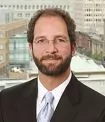IP LEGAL NEWS AND UPDATES
The Patent-Antitrust Interface: Are There Any No-No's Today?
Antitrust law and patent law are legal tectonic plates – always in motion, occasionally converging, occasionally diverging, and occasionally moving in parallel relation. As patent suits have recently multiplied, the antitrust enforcement policies have again responded – for example, imposing pro-competition rules on patent case settlements, on abuses in standard setting situations, and on practices used to obtain patents in the first instance.
The U.S. First-to-File Patent System Takes Effect March 16, 2013
Robert Kinberg, Michael A. Sartori, Ph.D., and Fabian M. Koenigbauer
March 16, 2013 is a critical cross-over date in the U.S. patent law which changes from a first-to-invent system to a first-to-file system. Under the current first-to-invent system, the first person to invent is entitled to patent rights. Under the new first-to-file system, patent rights are granted to the first inventor to file a patent application regardless of who was the first to invent. Any application or patent that contains, or contained at any time, a claimed invention having an effective filing date on or after March 16, 2013, will be subject to the new first-to-file system. The first-to-file system opens up a significantly larger body of prior art applicable to a claimed invention and also increases the available options to challenge a patent's validity in the U.S. Patent Office. Accordingly, we suggest, if at all possible, that inventors consider filing applications in the immediate future so that they fall under the old first-to-invent system.
An Overview of the Key Substantive Changes Implemented by the Recently Enacted Amendments to the Leahy-Smith America Invents Act and Title 35
Robert Kinberg and Fabian M. Koenigbauer
On January 14, 2013, H.R. 6621, entitled "An Act to correct and improve certain provisions of the Leahy-Smith America Invents Act and title 35, United States Code," was signed into law. H.R. 6621 not only corrects clerical errors but also contains substantive changes to patent law, which may be of interest to patent applicants or patentees. A brief summary of the key substantive changes is outlined below.
Exelixis Revisited: Conflict in Determining Patent Term Adjustment
Damon W.D. Wright, Fabian M. Koenigbauer, and Matthew R. Farley
On January 28, 2013, the U.S. District Court for the Eastern District of Virginia issued a decision in Exelixis, Inc. v. Kappos (Case No. 1:12-cv-00574-LMB-TRJ), holding that the U.S. Patent and Trademark Office ("PTO") has been correctly calculating patent term adjustments ("PTA") for patent applications in which a Request for Continued Examination ("RCE") was filed more than three years after the filing date of the application. The decision comes on the heels of a November 1, 2012 decision by the same name - Exelixis, Inc. v. Kappos (Case No. 1:12-cv-00096-TSE-TCB) - that held exactly the opposite.
A Major Change in Patent Term Adjustment Calculus on Appeal to the Federal Circuit: Steps Applicants May Need to Consider to Preserve Rights
Fabian M. Koenigbauer, Damon W.D. Wright, and Ryan M. Flandro
On November 1, 2012, Judge T.S. Ellis of the U.S. District Court for the Eastern District of Virginia decided Exelixis, Inc. v. Kappos (Case No. 1:12-cv-00096). Ruling against the U.S. Patent & Trademark Office (USPTO), Judge Ellis granted summary judgment to the Patentee and held that a Request for Continued Examination (RCE) filed more than three years after the effective filing date of a patent application has no impact on Patent Term Adjustment (PTA). ( See November 2012 IP Buzz). Since the Exelixis decision, there have been several important developments.
Understanding New Restrictions on Advertising GI Bill Benefits
Andrew D. Price and Jonathan L. Pompan
Lately it seems like every aspect of advertising and marketing targeting the military is ripe for generating positive public relations in the name of consumer protection. In a new and aggressive move, in December, the Department of Veterans Affairs ("VA") announced it had registered the term "GI Bill" as a trademark or brand with the U.S. Patent and Trademark Office. Advertisers of education opportunities to servicemembers and veterans need to take into account this important development intended to help protect servicemembers and veterans.
Federal Agencies Solicit Public Comments Regarding PAEs
Robert P. Davis and Jeffri A. Kaminski
Policy makers in Washington, DC have been hearing about the problems created by patent assertion entities – PAEs or, to some, "patent trolls" – from a number of quarters over the past few years. PAEs are generally entities that acquire patents and patent families in order to enforce them in the marketplace. A critical difference between PAEs and other patent holders is that PAEs don't generally make or sell products or services of their own, but simply license their patents to others. As a result, they are less susceptible to patent claims asserted by their targets and less concerned about discovery burdens than other parties in patent litigation.
If You Don't Want Your Registration Cancelled, Grant Your Opponent a Covenant Not to Sue
The United States Supreme Court, which rarely gets involved in trademark cases, has ruled that when a defendant in a trademark infringement case countersues to cancel the plaintiff's registration, the plaintiff can divest a court of jurisdiction over the cancellation by simply granting the defendant a broad covenant not to sue.
The Rocket Docket Takes on Rocket Science
Damon Wright and Matt Farley published "The Rocket Docket Takes on Rocket Science" in IP Frontline on December 27, 2012.
Click here to view the full text of this article.
ANNOUNCEMENTS AND REMINDERS
Venable Welcomes Associate Daniel A. Kopp to the Intellectual Property Division
Daniel A. Kopp joins Venable as an associate in the Patent Prosecution and Counseling group. He is a graduate of the George Washington University Law School and holds a Ph.D. in Biochemistry from MIT, as well as B.S. degrees in Chemistry and Biology from the College of William and Mary.
West Coast Art & Frame Show 2013
January 29, 2013
Joshua Kaufman presented "Key Legal Issues Facing the Arts" at the West Coast Art & Frame Show in Las Vegas on January 29, 2013. The WCAF Show is the largest Open Edition trade show in the United States.
The content of this article is intended to provide a general guide to the subject matter. Specialist advice should be sought about your specific circumstances.



